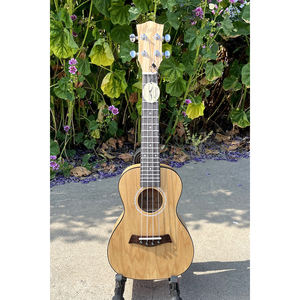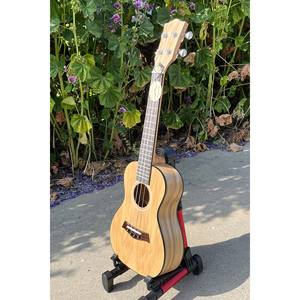
All categories
Featured selections
Trade Assurance
Buyer Central
Help Center
Get the app
Become a supplier

(168 products available)











































The best ukulele strings are available in different categories based on the material they are made from. Each type of string has its own unique sound and feel. Buyers can select the best options for their customers based on their preferences.
The options include:
The ukulele's popularity keeps rising, and so do string manufacturers who claim their product is the best of the best. But what are the best ukulele strings, and how can one tell?
It is often said that ukulele strings are like a good pair of shoes: they should fit the instrument well, be comfortable to use, and not break the bank. But just as a good shoe comes in many shapes and sizes, so too do ukulele strings, and finding the right one for an instrument can be as complex as finding the right shoe.
There are many types of ukulele strings on the market today, and each has its advantages and disadvantages. From nylon to gut to wound, the differences are as varied as the sounds they produce.
But what makes one string better than another? It all comes down to the sound. Some players prefer the warm, mellow sound of nylon strings, while others lean toward the bright, crisp sound of gut strings. Some players like wound strings because they produce a more profound tone, while others think string winding is an abomination and prefer un-wound strings.
So, with so many options, what are the best ukulele strings? It depends on the player, the instrument, and the sound they're trying to achieve.
Changing one's ukulele strings is one of the most essential skills every musician should have. But before doing so, they should know what kind of string they want to put on their instrument. There are many options, and depending on the sound that someone wants, certain strings will be better than others. Here are some things to keep in mind when choosing ukulele strings:
Changing frequency
One of the first things to consider is how often the instrument is strung. If the instrument is changed frequently, it will be helpful to use a durable string like nylon. This is because the string can take the tension of being played a lot.
Playing style
Another important thing to think about is the playing style. If there is a lot of fingerpicking, it will be helpful to use a string that has been wound to provide a more substantial sound and vibration. Conversely, if the playing style is mainly strumming, a solid string will work just as well.
Sound
One of the most important factors when choosing a string is the sound. Different types of strings will produce different sounds, as some are more warm toned and others more bright. A good example is that nylon strings produce a warm sound, while steel strings produce a more bright and ringing sound. In this case, it all comes down to what the player prefers.
Budget
Finally, one must consider the cost. Some strings are more expensive than others, and their difference in price is due to the material and brand. It is essential to choose a string that is within one's budget, as there is no point in buying something one cannot afford to maintain.
What are the best ukulele strings for beginners?
The best ukulele strings for beginners are those that are easy to handle and play. Thus, nylon strings are the best option because they are soft on the fingers. In addition, they do not have a sharp pain that accompanies steel strings. Therefore, a person can learn how to play the instrument better without any distractions.
Can one get electric ukulele strings?
Yes, one can get electric ukulele strings. An electric ukulele has a pickup that allows it to amplify the sound. The electric ukulele still uses the same strings as a regular one. The only difference is that they will be metal strings instead of nylon ones.
How often should one change their ukulele strings?
One should change their ukulele strings as often as they do when they play the instrument regularly. For example, if a person plays the ukulele daily, they should change the strings at least once a month. On the other hand, if the instrument is not played often, changing the strings every few months is necessary.
What factors affect how long ukulele strings last?
Many factors affect how long the ukulele strings will last. For example, the playing style of the person using the instrument can change how long the strings will last. In addition, the material of the string and how often the ukulele is cleaned are other factors that affect the duration of its strings.